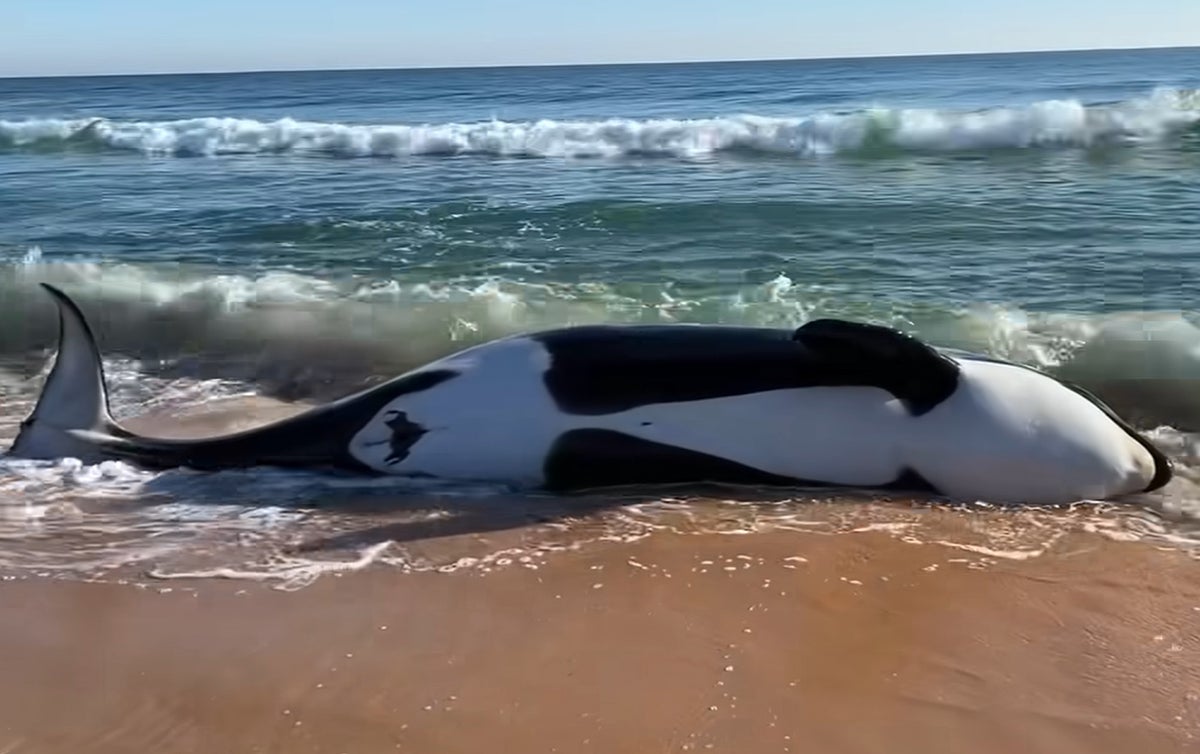
A 21ft orca stranded itself on a beach in Palm Coast in Florida after which it died in what is being called the first killer whale stranding in the American Southeast.
The orca whale washed itself ashore in Flagler County, surprising beachgoers, officials said on Wednesday. It weighed more than 6,000 pounds.
A video shared by the Flagler County Sheriff’s Office showed the marine mammal washed ashore, unresponsive, with waves crashing over it. The officials said on Facebook that there were no apparent signs of trauma on the body.
“This is the first killer whale stranding in the Southeast US, so there’s a lot of interest, obviously, in trying to sample it extensively and try to determine why it might have been sick and why it stranded,” Erin Fougeres, the Marine Mammal Stranding Program administrator for the National Oceanic and Atmospheric Administration’s Southeast Region told CNN.
On Wednesday, law enforcement officials asked people to avoid the area about 30 miles north of Daytona Beach and closed a road leading up to the area because of crowds gathering to see the whale.
Ms Fougeres said the mammal was taken to a lab for a necropsy and added that it could take weeks or even months to determine why it stranded itself.

“We have veterinarians and very skilled biologists and pathologists who will be on scene to conduct the necropsy of the animal,” she said. “They’ll open up the whale and they’ll go through every organ system and look to observe if there’s any gross lesions, anything obviously wrong with the different organ systems, and they’ll take extensive samples from the whale, which will then send out to a lab, or multiple labs actually for analysis.”
The Flagler County Sheriff’s Office said crews from Hubbs-SeaWorld Research Institute and Flagler County government worked to move the whale.
The National Oceanic and Atmospheric Administration estimates there to be 50,000 killer whales in the wild and the species can be found in every ocean around the globe.
More typical sighting locations include Antarctica, Norway and Alaska, but clusters are known to exist in the subtropics and tropics.
“It’s our first stranding ever here, but they are found in these waters, although less commonly along the Atlantic coast,” Ms Fougeres added.
Photos shared by the sheriff’s office on Facebook showed the mammal in straps tied around it with over a dozen people working to pull it out of the ocean.
The officials also later said the whale had been removed from the beach and that the area was open to traffic again.
On social media, many expressed sadness at the whale’s stranding.
“I worked at Sea World for over 15 years as an educator... and I know for sure the folks in this crew are doing this with broken hearts,” wrote user Anne C Smith.
Another user, Mary Kirdendoll, said: “Must be so heartbreaking for all the one’s helping this majestic animal.”







